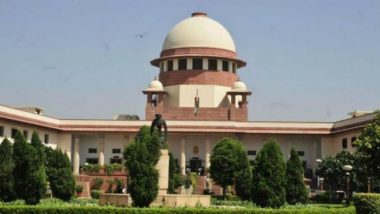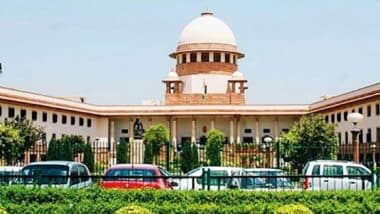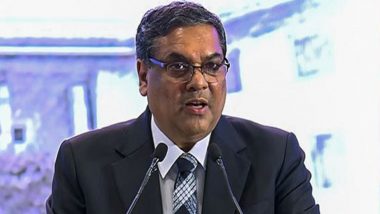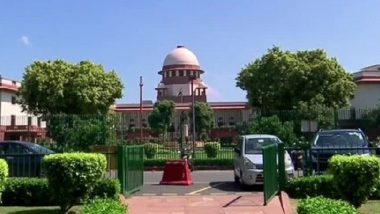New Delhi, January 10: The Supreme Court on Thursday adjourned the Ayodhya land dispute case till January 29 as one of the judges recused himself from hearing into the Ram Mandir-Babri Masjid matter. Justice UU Lalit, one of the judges in the five-judge bench headed by Chief Justice of India (CJI) Ranjan Gogoi, recused himself from hearing into the case after objections raised by Muslim groups as he had represented former Uttar Pradesh chief minister Kalyan Singh as a lawyer in a connected case. Ayodhya Act 1993: When Congress Passed Law For Construction of Ram Mandir And BJP Opposed it.
The bench hearing the Ram Janmabhoomi-Babri Masjid case also consisted of Justices SA Bobde, NV Ramana and DY Chandrachud. With Justice Lalit asking for him to be recused from hearing into the case, the court said that there was no option left but to adjourn the hearing again. Reports say that a new bench would have to be constituted now that Justice Lalit wanted to be recused from hearing. Ram Mandir Via Ordinance or Law: Will Modi Government Adopt Somnath Route For Ayodhya?
CJI Gogoi today clarified that today was not a hearing into the case and that only a timeline was being decided by the bench. However, the process has been delayed.
Meanwhile, Solicitor General Tushar Mehta and eminent lawyer Harish Salve represented the Hindu petitioners and R Dhavan and Raju Ramachandran represented the Muslim side.
On September 27 last year, a three-judge bench, headed by the then Chief Justice Dipak Misra, had refused to refer to a five-judge constitution bench, the matter of reconsideration of the observations in its 1994 judgment that a mosque was not integral to Islam. In October, the apex court had listed the Ram Janmabhoomi-Babri Masjid land title dispute in January 2019 for fixing the date of hearing.
On January 4, when the matter was first taken up after the retirement of former CJI Dipak Misra, the Supreme Court said that further orders in the matter would be passed on January 10 by “the appropriate bench, as may be constituted”. Following this, a five-judge Constitution Bench was set up for hearing the case.
The Constitution Bench will hear a batch of petitions against the 2010 Allahabad High Court judgement, delivered in four civil suits, that the 2.77-acre land be partitioned equally among the three parties — the Sunni Waqf Board, the Nirmohi Akhara and Ram Lalla. Several pleas for an urgent hearing had been rejected by the top court.
(The above story first appeared on LatestLY on Jan 10, 2019 10:58 AM IST. For more news and updates on politics, world, sports, entertainment and lifestyle, log on to our website latestly.com).













 Quickly
Quickly




















